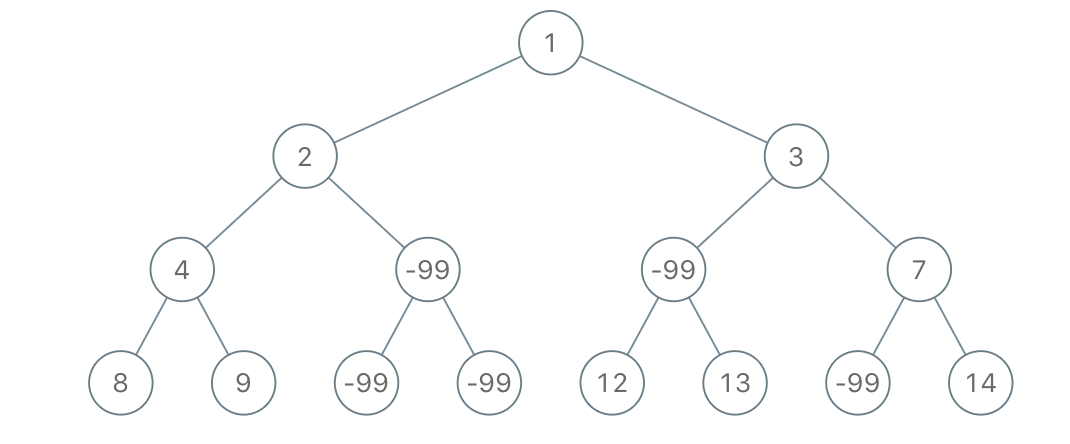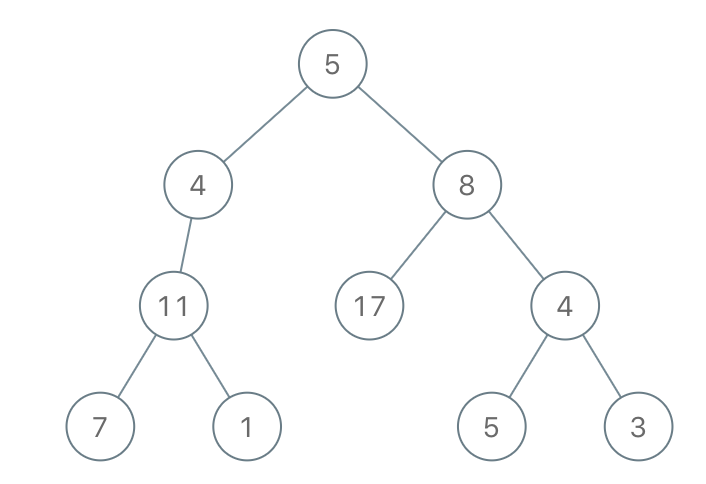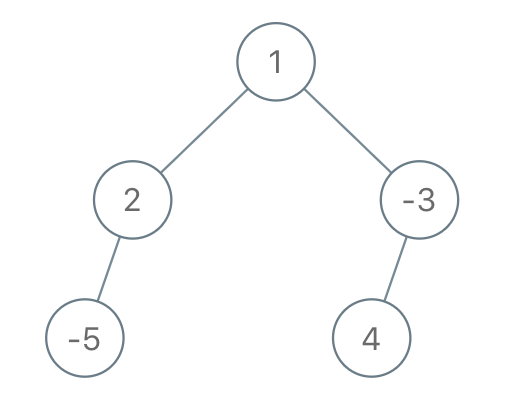Given the root of a binary tree and an integer limit, delete all insufficient nodes in the tree simultaneously, and return the root of the resulting binary tree.
A node is insufficient if every root to leaf path intersecting this node has a sum strictly less than limit.
A leaf is a node with no children.
Input: root = [1,2,3,4,-99,-99,7,8,9,-99,-99,12,13,-99,14], limit = 1 Output: [1,2,3,4,null,null,7,8,9,null,14]
Input: root = [5,4,8,11,null,17,4,7,1,null,null,5,3], limit = 22 Output: [5,4,8,11,null,17,4,7,null,null,null,5]
Input: root = [1,2,-3,-5,null,4,null], limit = -1 Output: [1,null,-3,4]
- The number of nodes in the tree is in the range
[1, 5000]. -105 <= Node.val <= 105-109 <= limit <= 109
# Definition for a binary tree node.
# class TreeNode:
# def __init__(self, val=0, left=None, right=None):
# self.val = val
# self.left = left
# self.right = right
class Solution:
def sufficientSubset(self, root: Optional[TreeNode], limit: int) -> Optional[TreeNode]:
def dfs(root: Optional[TreeNode]) -> None:
if root is not None:
if root.left is not None:
root.left.rootsum = root.rootsum + root.left.val
if root.right is not None:
root.right.rootsum = root.rootsum + root.right.val
dfs(root.left)
dfs(root.right)
if root.left is None and root.right is None:
root.leafsum = 0
elif root.left is None:
root.leafsum = root.right.leafsum + root.right.val
elif root.right is None:
root.leafsum = root.left.leafsum + root.left.val
else:
root.leafsum = max(
root.left.leafsum + root.left.val, root.right.leafsum + root.right.val)
root.rootsum = root.val
dfs(root)
if root.rootsum + root.leafsum < limit:
return None
nodes = [root]
while nodes != []:
node = nodes.pop()
if node.left is not None:
if node.left.rootsum + node.left.leafsum < limit:
node.left = None
else:
nodes.append(node.left)
if node.right is not None:
if node.right.rootsum + node.right.leafsum < limit:
node.right = None
else:
nodes.append(node.right)
return root

